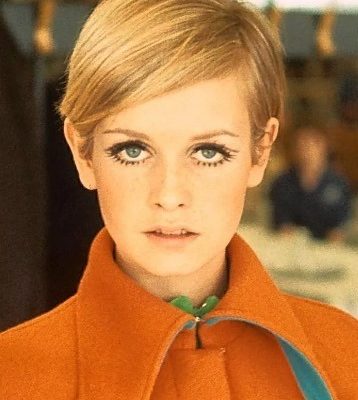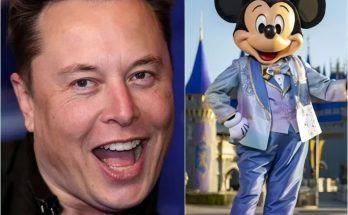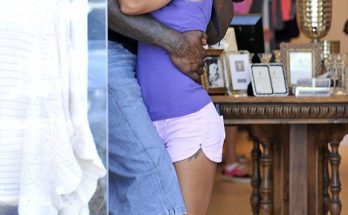Reluctantly taking her appearance to the next level, Twiggy complemented her elfin-like face and big blue eyes with a pixie hairstyle in a unique look that’s been replicated over the decades.
Though she transformed the fashion industry with her youthful style, the legendary cover girl recently revealed that she didn’t want the androgynous buzz that defined the look of the Swinging Sixties, and that she was just too shy to deny the work of a famous hairstylist in a “posh salon.”
Celebrating her 74th birthday on September 19, we’re taking you back to the 1960s when Twiggy first inspired the famous baby doll styles we still see today!
Lewis was looking for models to try out his new crop haircut.
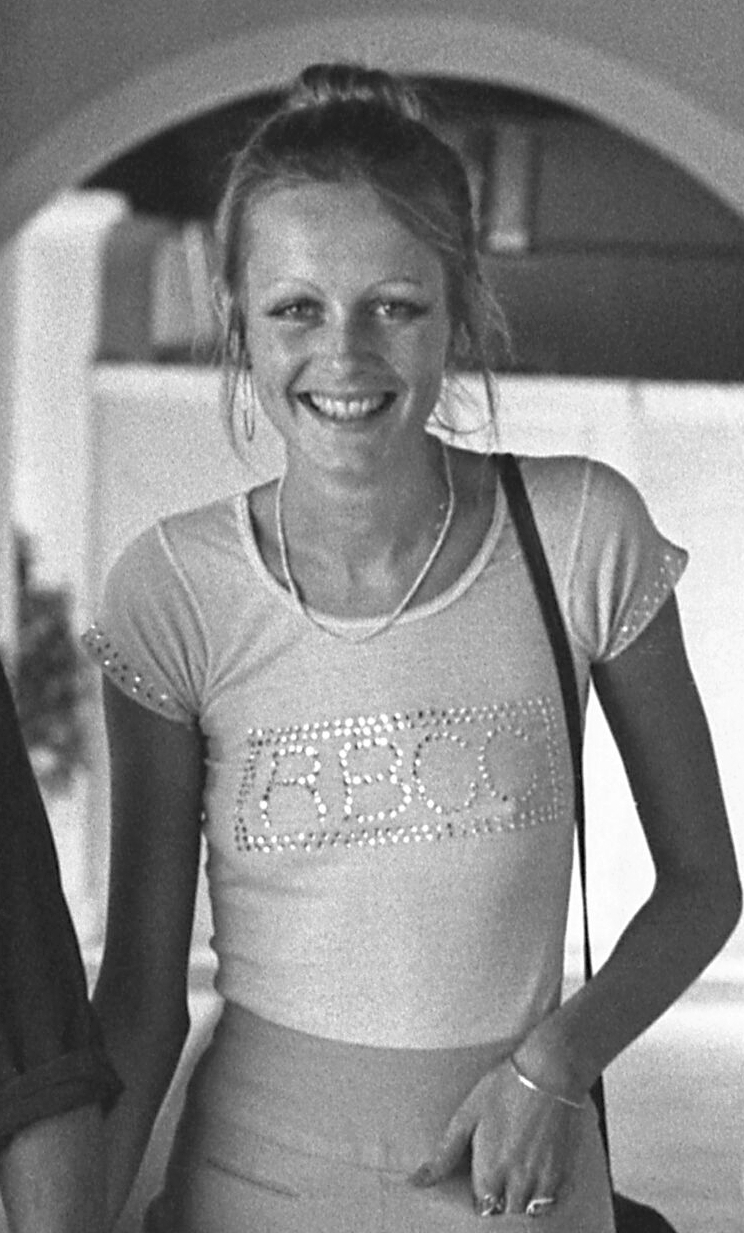
In her recent guest appearance on Jessie Ware’s podcast, “Table Manners,” the former style icon revealed that she never wanted to have her hair cut short.
“I went in to have it shampooed and set and Leonard saw me, and he said, ‘Let me do my new haircut on you,’” Twiggy told Ware during the podcast. “I’d been growing my hair, for a moment I kind of went, ‘I don’t know whether I want my hair cut.’ But I was in this very posh salon in Mayfair so I was a bit too shy to say I don’t want it done, and I kind of nodded.”
The next day, Twiggy returned to the salon and sat in Lewis’ chair, bracing herself for what was coming.
“I went back the next day and I was in there for seven hours, where he cut it and then I went out and had it colored and then re-cut. Oh, it was mad,” she said with a laugh.
And though the androgynous look wasn’t what Twiggy was chasing, she quickly understood why Lewis earned notoriety as a stylist.
After perfecting her golden blonde crop, Lewis had British photographer, Barry Lategan, snapped Twiggy’s pictures.
“Leonard put it up in the salon and a journalist saw it,” Twiggy said, referring to the Daily Express fashion editor Deirdre McSharry, who while having Lewis style her hair, saw Twiggy’s daring do in the photos. “That’s how it all happened…When that haircut started, when that photograph was taken, that was the pivotal moment.”
The pixie cut highlighted her large blue eyes, which she emphasized with mascara on her lower eyelashes.
In a conversation with Vogue, Twiggy explained the inspiration behind her doe eyes: “I was also constantly playing around with make-up at home. I had a rag doll that had those spikey eyelashes, so I bought false eyelashes for myself and created what became known as my sort of ‘look.’”
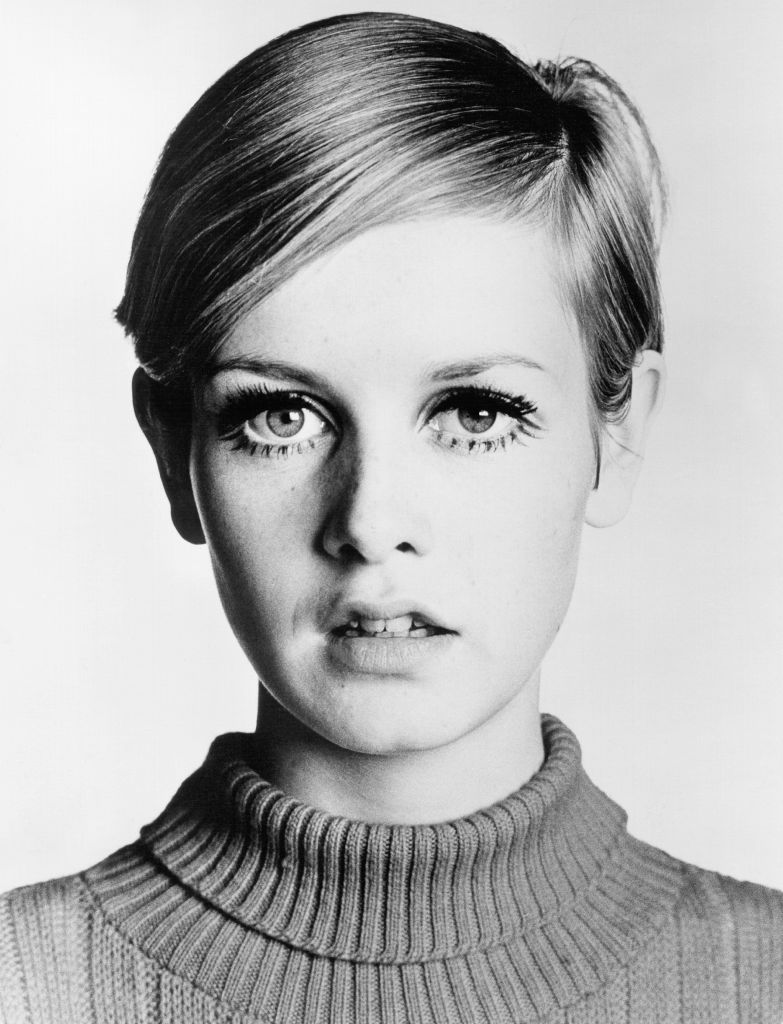
The former supermodel also said as a youngster, when she wasn’t in the strict confines of her school, that she rebelled by wearing makeup and miniskirts to Saturday night mod clubs with her friends.
“I went to a grammar school, so it was quite strict. We wore uniforms and makeup was not allowed. So, on the weekends, me and my friends would sit like most teenage girls and play with makeup.” She continued “And that’s how that makeup evolved.”
And the eyes became part of her signature look.
A few weeks after the shoot for the Daily Express, several pictures–now iconic black and white images that launched her modeling career–along with the headline “Twiggy–The Face Of ‘66” appeared on the pages of the paper.
The following month, she did her first shoot for Vogue and her “life became a whirlwind.”
The quintessential mold for mod fashion, Twiggy was the role model to many women and, still in her teens, she became the first celebrity that Mattel used as a blueprint for a Twiggy Barbie.
Over the next several years, Twiggy’s name became synonymous with the trailblazing British designer Mary Quant, who revolutionized fashion with short hemlines, freeing the female leg.
After only a handful years of modelling, Twiggy retired in 1970 and explored stage and screen acting, along with singing.
Her movies include starring roles in 1971s The Boy Friend–a performance that earned her two Golden Globes–and Club Paradise (1986), where she played the lead alongside the late Robin Williams.
The America’s Next Top Model judge also worked on a fashion line exclusive to Marks & Spencer and ppeared on several of the brand’s billboard ads.
In 2011, she released the album “Romantically Yours,” that features cover songs like “Blue Moon,” “They Can’t Take That Away from Me” and “Right Here Waiting.” Her only daughter, Carly Lawson (born 1978) is a guest vocalist on some of the tracks.
Still on the frontlines of fashion, the stunning woman was ambassador for L’Oreal and she partners with other brands as a designer.
These days the icon is keeping busy with her own podcast, Tea with Twiggy, where each week she has intimate chats with her famous friends.
And despite all her achievements, Twiggy, one of the most recognizable faces of her generation, said her success can only be measured by the bond she shares with her incredible daughter.
After her father, actor Michael Witney, died at 52 at her fifth birthday celebration, Carly was raised by her mom and second husband, Leigh Lawson, whom Twiggy married in 1988.
“My number one is family. It always has been, even when Carly was little. If it didn’t work for Carly, I didn’t do it,” said Twiggy, who’s also a grandmother. “We went everywhere together but that’s why we’re so close now. The other day, she was saying, ‘I can’t remember a time when you weren’t there, Mum’ and it’s because I was always there. Even when I travelled, she came with me.”
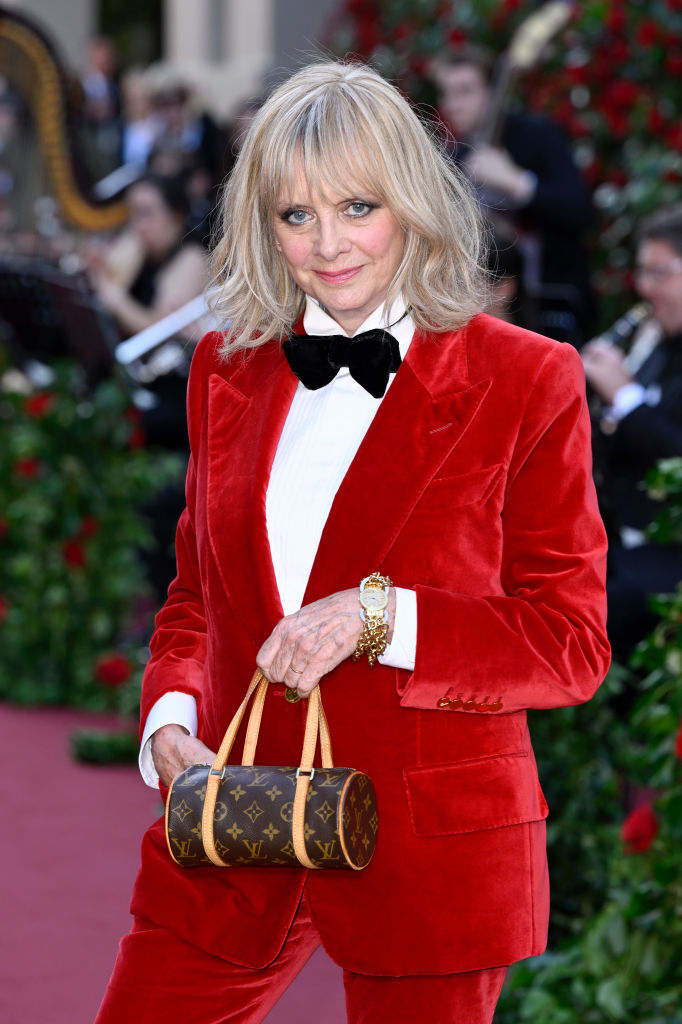
Twiggy is the envy of many women for being able to pull off that pixie cut from the 1960s! She looked, and still looks, gorgeous!
What are your memories of the Swinging Sixties? What is the most daring hairstyle you’ve tried?
Please share this story and let’s show Twiggy some love on her birthday!
If you enjoyed reading about the evolution of Twiggy’s style, take a look on how Catherine Deneuve look today, who also had her big break in the 1960s.
